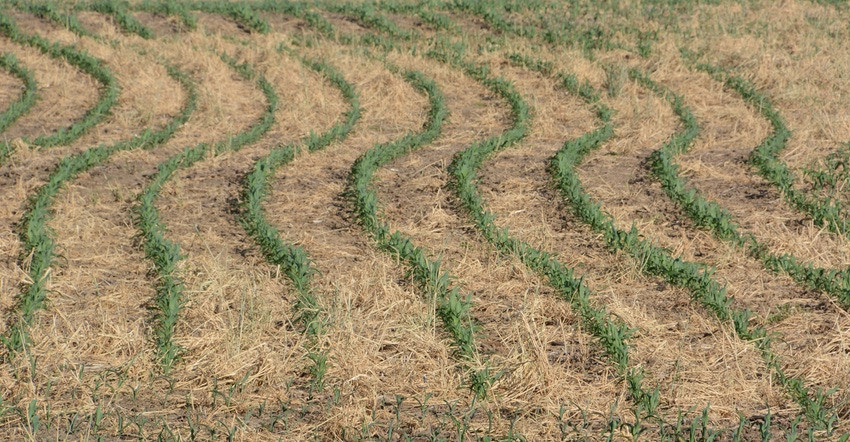
Development of a carbon credit market is moving fast, focusing mostly on the technical and business aspects. Yet, most entities involved in this effort lack the focus and expertise for building outreach and education capacities, along with the business model. They can utilize institutions’ capacities, such as land-grant universities and other entities to provide educational and technical expertise to potential clients, especially in the agriculture sector.
There is a significant need to prepare famers and to answer their technical and legal issues associated with contracts, and — above all — to educate them about their role as a part of climate solutions. This missing link in the process of building a carbon market is critical to the success of this effort.
Most of the current efforts in establishing a carbon credit market’s presence are focused on the structure and technical protocols as business entities. This is a necessary and important first step, based on the assumption “If we build it, they will come.” This thinking is true, to a certain extent, but it is imperative to have a comprehensive approach that couples education and technical expertise with development of a carbon market to increase awareness, and to provide information and technical assistance to clients, and to provide funding to support climate-smart solution adoption. The attempts by many in the private and ag industry sectors lack the inclusion of a robust outreach platform on local and national levels as an integral part of the technical approach, especially in agriculture.
Prepping ag for success
The urgency for climate change solutions and development of a diverse portfolio of solutions requires a robust education track, along with a technical approach, especially in the agriculture production and forestry systems. The current focus on the national level is falling short of bringing the public at large — and farmers in particular — to full engagement in the development of climate change solutions through workshops and other venues.
There is a great energy within our society to address the challenges of climate change, but this energy is fragmented and not channeled in a more organized way through developing an effective education platform addressing farmers’ concerns. The education and outreach tracks are needed to address societal, technical and economic obstacles that may affect adoption of climate-smart agriculture solutions, which may lead to a potential derailment of the carbon market.
The use of climate-smart agriculture practices, or regenerative agriculture systems, is a critical component of a climate solutions portfolio. For this system to be effective, a robust education and outreach effort needs to be in place to bring awareness and promotion of such practices among farmers and agronomists.
To do that, a partnership between different entities developing carbon credit markets and education institutions, such as land-grant universities and Extension, is needed to develop training and capacity-building programs, with emphasis on:
education of farmers, agronomists and the public at large of the urgency and impact of the climate change threat to agriculture production, rural economies, production costs, soil resilience and food security
educating, promoting and increasing awareness of the benefits of climate-smart agriculture and regenerative ag practices in mitigating climate extremes, such as drought and wet events
help farmers and agronomists understand — and prepare them to be aware of — the benefits of atmospheric CO2 removal in reducing climate-change effects and their contribution to improve soil health and eventually enhance soil productivity and ecosystem services
the effective education program necessary to increase levels of understanding, education and awareness, along with development of a carbon market. This will ensure engagement of farmers and agronomists, which can enhance the level of success and ownership in these endeavors by farmers and the public.
a renewed effort on the national level to structure any funding opportunities for supporting carbon markets and climate solutions (i.e, regenerative agriculture practices) by requiring that Extension services at land-grant universities be fully engaged by providing funding that enables them to deliver education and outreach training tailored to climate-smart solutions.
The development of such an approach will ensure greater understanding of the benefits of climate-smart agriculture practices in building and transforming the 1900s-era agriculture model. That model was built on high-energy input of fossil fuels, chemicals and intensive tillage systems, which led to greater losses of our soil’s organic matter over the past 150 years, where greater than 50% of the Midwest soil organic matter has been lost.
A robust education and outreach program during the development of carbon markets by private industry is essential to have well-educated field staff providing science-based advice to farmers. In addition, it should be a priority on the national level within the development of the farm bill and USDA funding programs for Extension, outreach and research. Providing such resources to encourage adoption of potential solutions to climate change is key, especially in agriculture, by using the right expertise with scientific training and technical knowledge.
Al-Kaisi is a professor emeritus of soil physics (soil management and environment) at the Department of Agronomy, Iowa State University, Ames.
About the Author(s)
You May Also Like






